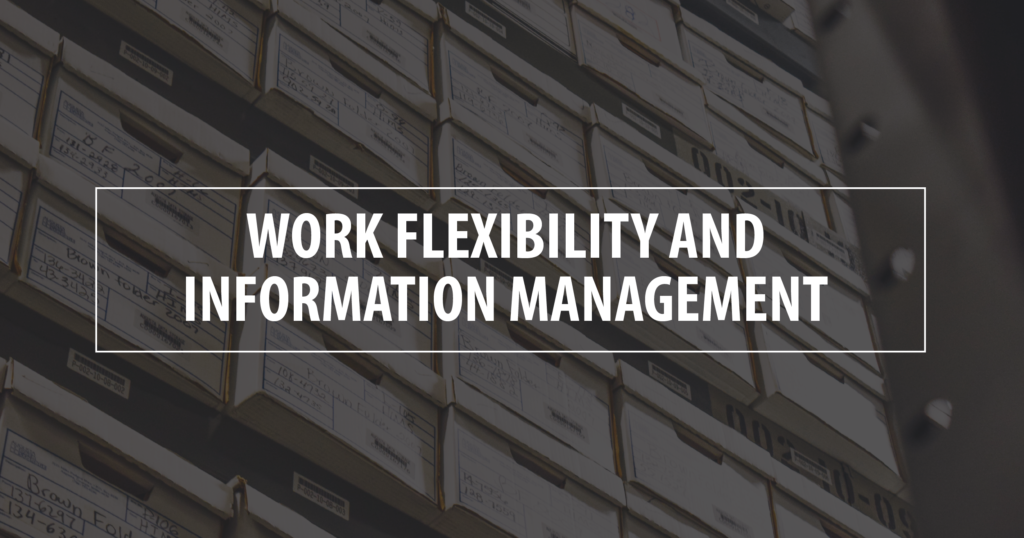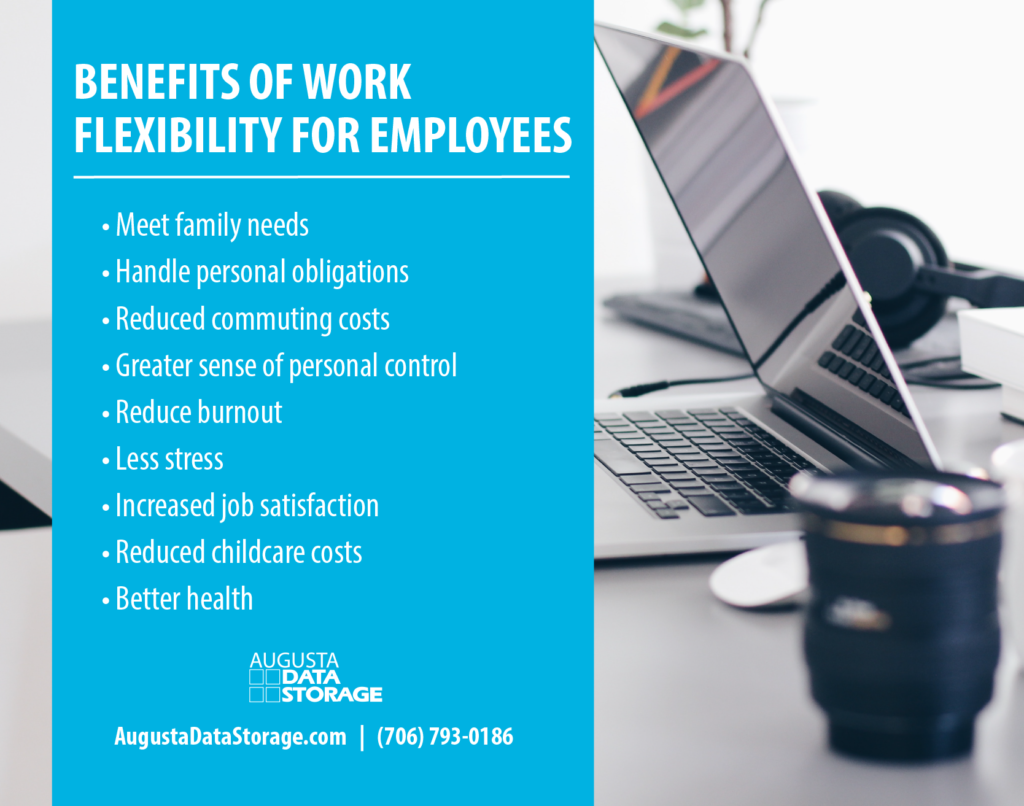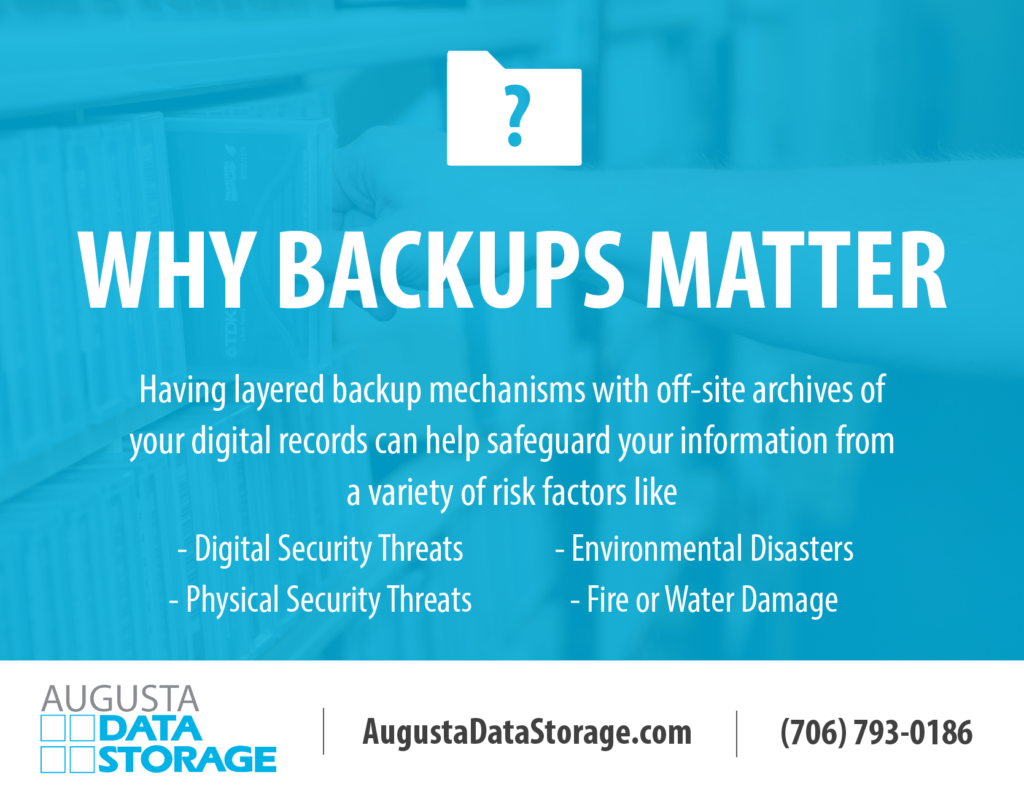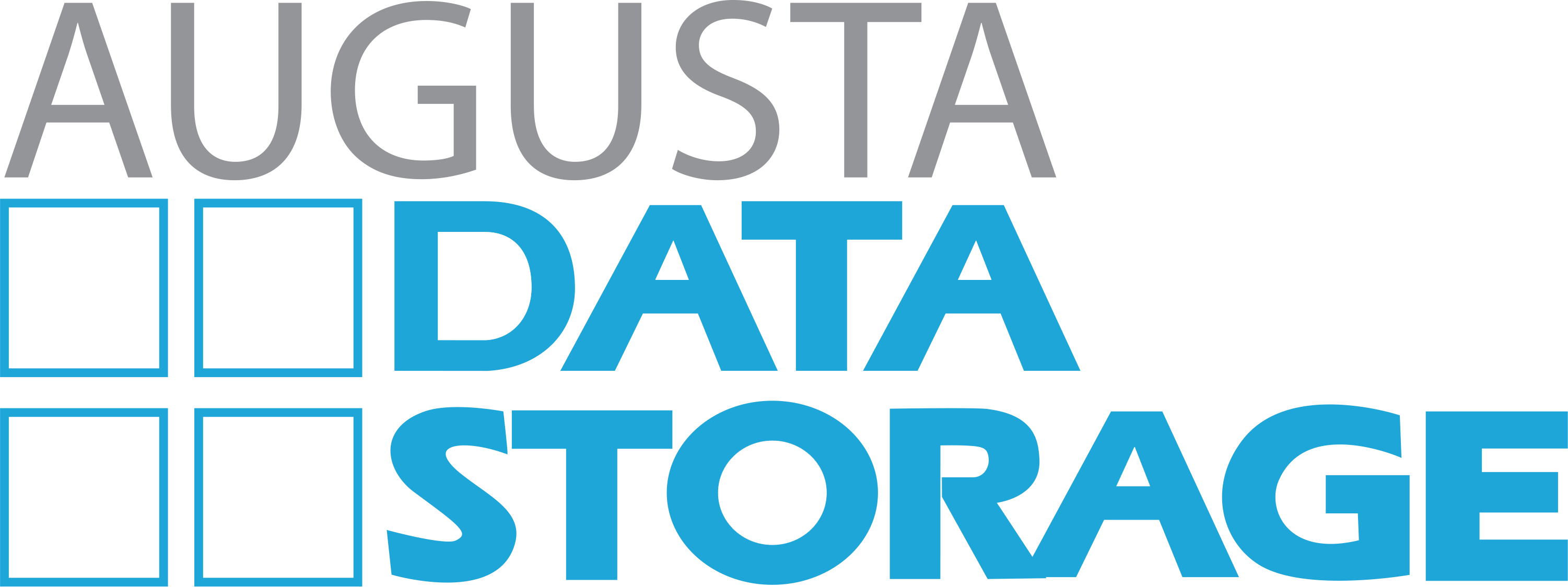Work Flexibility and Information Management

Work flexibility is a term we’re hearing a lot more lately. As vaccines roll out and employers make plans for what the future of their work environments will look like, many employees have adjusted to the “new normal” of remote and at-home work setups.
For many employers, this has required changes in information access, possibly a shift from physical to digital asset management systems, additional security precautions and finding ways to move from in-person day-to-day work to virtual collaboration and team setups.
What does Work Flexibility Look Like?
As we look forward into the later parts of 2021 and beyond, here’s a peek at what some lager workforces have in their future.
Spotify has given their employees a few options that they are able to select for one year at a time: work in an office, remotely, or at a coworking space that the company will pay a subscription for. Unike other companies such as Facebook and Twitter, Spotify has said it would continue to pay at San Francisco or New York salary rates, based on the type of job.
Many publishers are pushing their in-office working plans until summer 2021 or even 2022. Here are what 21 other major companies have announced for remote working long-term.
The Benefits of Work Flexibility
There are many benefits to work flexibility for both employees and employers. Even before COVID, many employees sought flex schedules. By offering flexible working options, employers are often able to attract top talent. Indeed has said that a flex schedule allows employees to work at the times most convenient for them, this also includes remote working.
Work flexibility can give employees the opportunity to meet family needs, personal obligations, and life responsibilities conveniently. Employees can also save money on commuting costs, childcare costs, have an increased sense of personal control, and reduce burnout.
The Olson Group has said that flexible working is one of the most important benefits that companies can offer. It creates less stress, increased job satisfaction, and better health in employees.

As remote working is becoming “the norm” it is important to continuously update and monitor your information management practices. When information is not being stored in a physical building it is even more important to keep track of all of your data and who has access to it.
How to manage hard-copy records storage for remote work forces
Whether your offices are closing or your business is downsizing, Augusta Data Storage offers a storage solution for hardcopy records. If your office is vacant, it leaves records unmonitored and susceptible to breach. Our facilities are secure and we offer a variety of retrieval access options.
We provide scan-on-demand delivery for records access when and where you need it through encrypted email. If many different employees need access to records stored at our facility make sure they are included on your access forms.
How to manage information destruction for remote workforces
Augusta Data Storage offers drop-off shredding services at our Augusta, GA facility. This is a great option for business and local residents in need of one time, small batch shredding services.
If your remote employees have physical access to records in their home encourage them to securely collect records and bring them to your office and maintain a regular destruction schedule. Schedule regular destruction drop off times for employees to bring in documents for destruction and clearly define expectations for the handling of hard-copy secure information.
We also encourage your organization to talk about hard-drive security and secure destruction of outdated electronics. Be sure to define electronic device management as a part of the records management process. For an extra security boost, take precautions to ensure that information is not being hosted or stored on personally owned devices.
Archive and Vault Storage Matter More Than Ever in 2021
With a growing dependence on digital information management, digital archives and backups should be a top priority for your business in 2021.
It is important to create backups of your organization’s data and information, not just as a safeguard for digital threats, but also physical threats, such as fires, floods, and other natural disasters. Off-site, secure storage solutions will provide the maximum protection for your data and information. Read more for information on the value of vault storage. Bonus Tip: We recommend using layered backup systems for maximum security.

As digital dependence grows AND the threats of cyber attacks continue, it is important to know how to protect your data from data breaches. 2020 saw some of the largest information data breaches in history, including 235 million Instagram, Tiktok, and Youtube user profiles exposed and 267 million Facebook user profiles sold on the dark web. While many attacks like this are the result of malicious hacking attempts, There were many causes for the data breaches in 2020, including user error and underprotected information management systems.
No matter where your business is headed in 2021 and beyond, it’s crucial to maintain systems and processes that help protect the information your business is responsible for managing. Whether in paper or digital form, your organization bares the ultimate responsibility for protecting user and consumer information it collects. Be sure to take the appropriate steps to plan, update, and implement the appropriate information policies for the changing landscape of your work environment.
